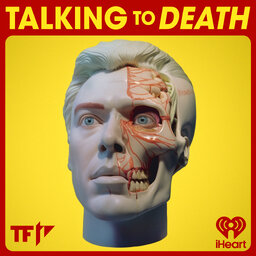Holly Madison | The Dark Side of Playboy, Fame and Autism
Holly Madison is a former Playboy model, reality TV star, and author. Rising to prominence as one of Hugh Hefner's girlfriends featured in "The Girls Next Door," she later penned a revealing memoir, "Down the Rabbit Hole," shedding light on her experiences in the Playboy Mansion. An entrepreneur and advocate for women's empowerment, Holly Madison speaks on her life and career beyond the iconic bunny ears.
Subscribe to Tenderfoot+ for ad-free listening - https://tenderfoot.tv/plus/
Follow Talking to Death on Social:
IG: @talkingtodeath
TikTok: @talkingtodeathpodcast
In 1 playlist(s)
Talking to Death with Payne Lindsey
Up and Vanished host and creator Payne Lindsey wants to talk you to death in his first “true crime” …Social links
Follow podcast
Recent clips

Jason Flom | Wrongful Convictions, Death Row and Rock and Roll (RE-RELEASE)
55:33

Jeremy Corbell | UAP, Disclosure and Filmmaking (RE-RELEASE)
1:02:11

Maggie Freleng | Journalism, Serial Killers and Podcasting (RE-RELEASE)
1:22:22
 Talking to Death with Payne Lindsey
Talking to Death with Payne Lindsey